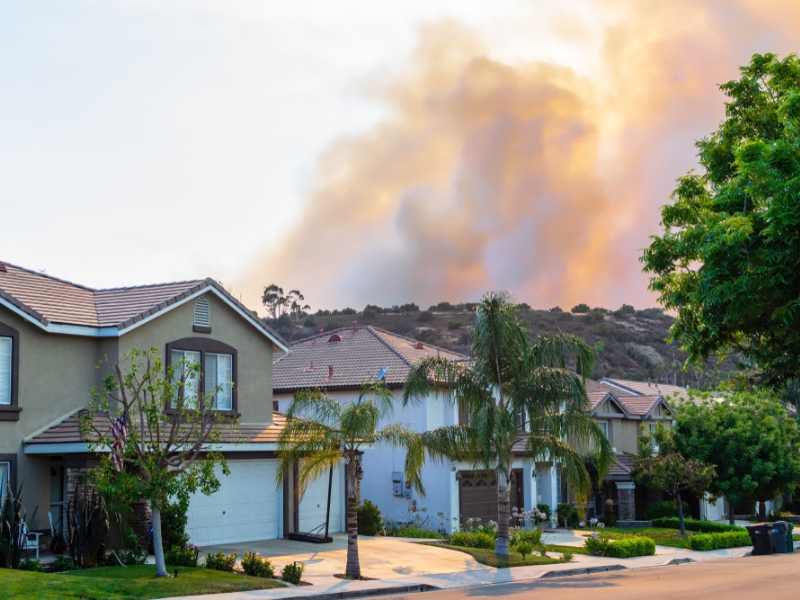First Posted August 21 2019, 11:00 AM PDT by Meaghan McGlynn
Posted in Living by Meaghan McGlynn

After last year’s wildfires, some of the largest and deadliest in recent memory, spread along the west coast, homeowners are on edge as to what this fire season will bring. The questions of whether their home will be burnt, or if they will be affected by poor air quality, hang in the air much like the smoke of a nearby fire. Accompanied by heatwaves hitting much of the U.S. these fears can turn into realities just as quick as a spark in brush. Luckily there are ways to prevent damage and to prepare for anything coming your way.
Be prepared with fire insurance
Are you currently protected in case of a fire? Make sure to talk with your insurance agent and work on a plan to insure your home.
Questions to ask them are:
- What is covered should our home be destroyed in a fire?
- What kinds of documentation do we need to do in order to get the full benefit of the insurance?
- It’s usually a great idea to keep a log of what is in your home and how much it costs. Keep receipts and invoices if possible.
- Who at the company should we contact in case of emergency?
Be prepared with an emergency kit
Cal Fire has a comprehensive guide to all things wildfire preparedness. Here they suggest putting together an emergency kit that’s always ready in case of sudden evacuations. They recommend including:
- Map marked with at least two evacuation routes
- Non-perishable foods to last three days
- Prescriptions and medications. Also, eyeglasses or contact lenses.
- Change of clothes
- Toiletries and sanitation supplies
- And extra set of car keys, as well as credit cards, cash or traveler’s checks
- First aid kit
- Flashlight and batteries
- Copies of important documents like birth certificates and passports
- Food and water for your pet
- Chargers for cell phones and other devices
Some other items you might consider having close by are easily carried valuables, sentimental items like family photos, and computers or hard drives. Keep a sturdy pair of shoes and a flashlight near your bed for any evacuations at night.
Prevent damage by fortifying the building
Fire-Safe Landscaping
You don’t have to re-do the entire garden to slow the fire down. Home Advisor recommends you create a balance of aesthetically pleasing flora and slow-burning plants that are less likely to ignite.
Additionally, keep your garden and property free of dry materials that are ideal for kindling either in your bonfire or for a wildfire. Not only does creating this barrier protect your home, it also gives firefighters a safe area to work from as they work to control the fire.
To see what plants to use and other ways to fireproof your property, visit HomeAdvisor.
Build or remodel with flame-resistant materials
Materials like brick, stucco, metal, or concrete are great exteriors that can prevent the fire from taking hold of your home, at least initially. If your home is already built with one of these materials, the weak points might lie in your extremities like your deck or porch. Consider re-building these with fire-proof materials or add a coating to protect them.
Additionally, protect the most vulnerable areas of your home, like your windows and any air vents. Add retractable fireproof panels to your windows or replace the glass with wire glass or fire-proof safety glass. Don’t forget your skylights or windows on your doors.
 Facebook
Facebook
 X
X
 Pinterest
Pinterest
 Copy Link
Copy Link
